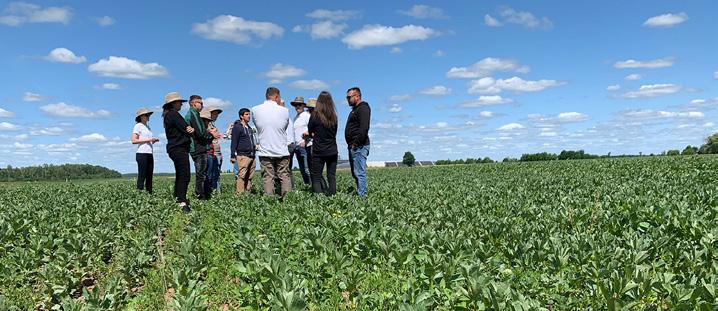Excerpts from
Annual Report 2023/24
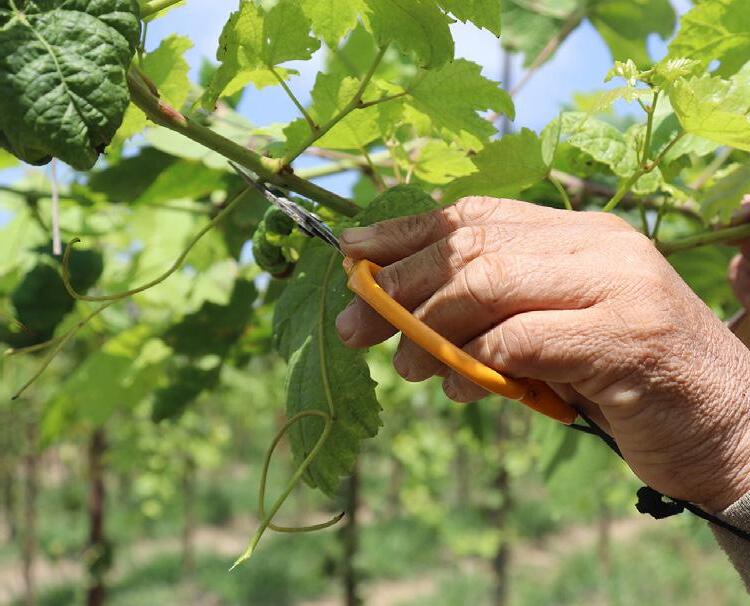
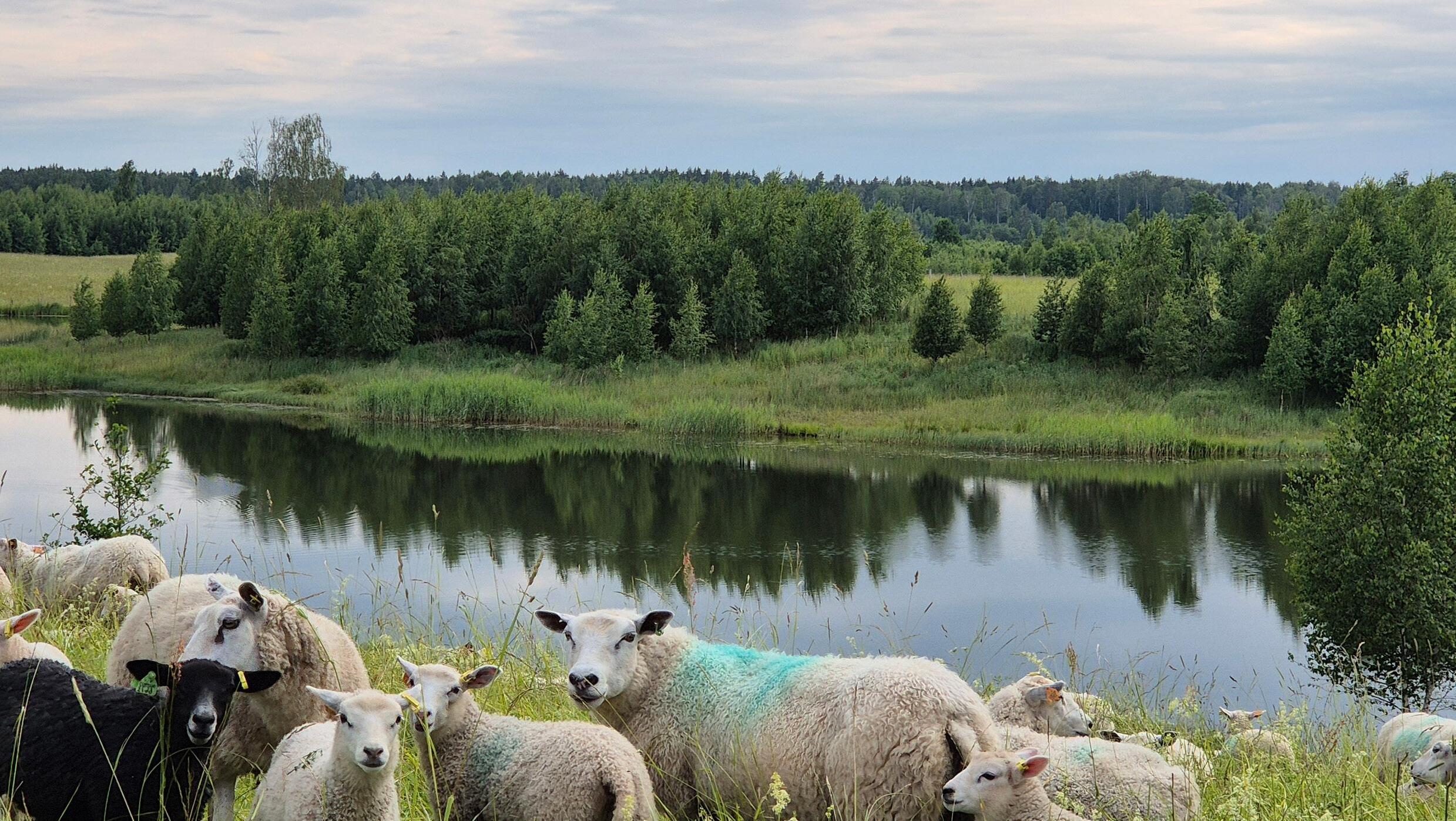
Corporate social responsibility Report on
The Ingleby vision
As farmers, we play an important part in solving some of the most pressing global challenges we face today.
We want to farm with nature – not against it. We believe farming done right can help the planet, and we aim to live up to this task every day, in everything we do.
We apply regenerative farming principles and constantly improve our soils. We preserve and enhance the biodiversity on our farms, and work towards sustainable consumption and production.
We treat our people, animals and communities with care and respect.
Because the way we choose to farm today echoes for generations. Our vision is to be leading regenerative farmers. We farm to produce good, healthy food, and also to protect the environment for future generations.
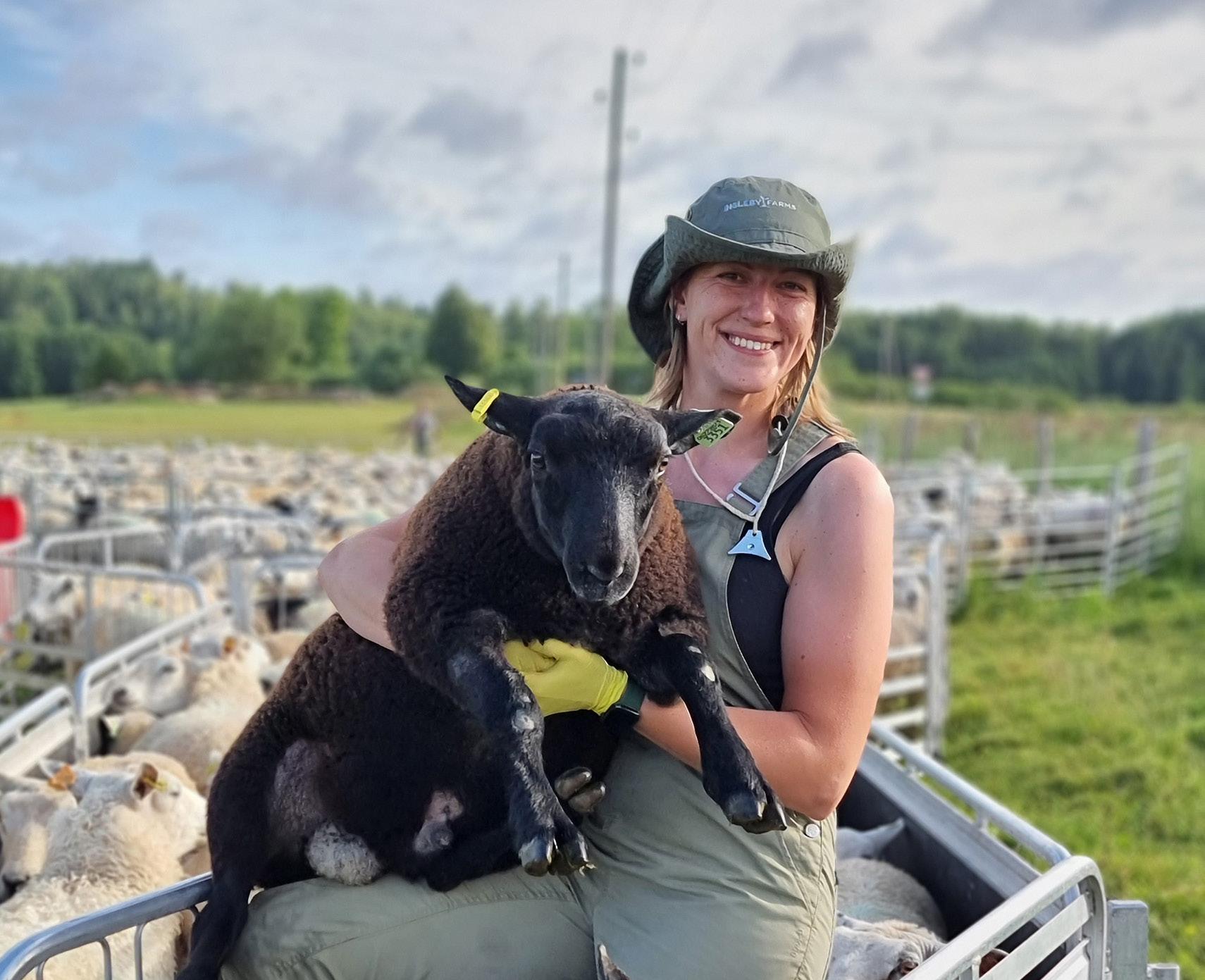
Striving to do right
Our business model is to produce good, healthy food, while protecting the environment for future generations. We apply regenerative farming principles and constantly improve our soil. We preserve and enhance the biodiversity on our farms, and work towards sustainable consumption and production. We treat our people, animals and communities with care and respect.
We own and manage 43 farms and forests diversified across nine countries and four continents. This adds up to 103,300 hectares, of which we protect 31% as natural habitats, including 2.8% as water habitats.
Our teams work year-round to produce sustainable seeds, grains, vegetables, fruits, berries, nuts, meat and milk of premium quality.
We believe that our focus on creating healthy soil will not only improve our yields, but also the health of our products. We believe that there is a correlation between fertile soil, healthy plants, and the quality of the grain, fruit or nuts.
O
Our farms
We are long-term owners of land. We own and manage 43 farms and forests across nine countries and four continents. Our worldwide number of hectares adds up to 103,300 hectares, of which we protect 31% as natural habitats, including 2.8% as water habitats. We own and manage arable land, pastures, horticulture and forests.
Human rights
Our main risks related to human rights are found within our supply chains. To mitigate risks of compromised labour and human rights in our supply chain, we – during the reporting period of 2023/24 – asked all new suppliers to sign and adhere to our Supplier’s Code of Conduct, which includes our expectations and minimum standards for labour and human rights.
We support and respect internationally recognised labour standards and human rights. We fulfil our legal obligations and offer reasonable terms on pay, pension, sick leave, holidays and notice periods. We do not use any form of forced or compulsory labour, and we do not use child labour. We uphold the freedom of association and the right to collective bargaining.
Again in 2023/24, we have not experienced any human rights violations on our farms or to our Supplier’s Code of Conduct.
In the coming years, we expect the focus on human rights to intensify, and we expect and anticipate being more involved in assessing our suppliers’ values on human rights.
Anti-corruption
Ingleby Farms operates in many countries, some of which are perceived to have a medium to high risk of corruption. The most material risk is bribery. We are committed to conducting our business in an honest and ethical manner. We work against corruption in all forms, including extortion and bribery.
Ethical policy
We abide by our Ethical Policy, Anti-Money Laundering & Anti-Corruption Policy and Supplier's Code of Conduct. Together, these constitute our Code of Business Conduct.
We require our employees and business partners to comply with the Ingleby Code of Business Conduct and to report any violations or suspected breaches. This is supported by our online whistleblower system allowing for full anonymity.
We investigate all submissions thoroughly, take appropriate actions and report any breaches to the Board of Directors. We ensure there is no retaliation against people who report alleged breaches of the Code of Business Conduct.
We have zero tolerance towards breaches of our Code of Business Conduct. For 2023/24, we had no whistleblowing cases, no IT security breaches, no breaches within production, but we did have one breach of ethical policy. This breach related to security personnel on one of our farms in Peru who were involved in theft of input materials from that farm. The case involved local police and subsequently prober actions to reinstall security, including dismissal of the involved personnel.
In the coming years, we will continue to encourage our business partners and employees to report on corrupt behaviour, to minimise the risk of future incidents of corruption. O Handpicking blueberries requires skilled team members to pick only the ripe berries.
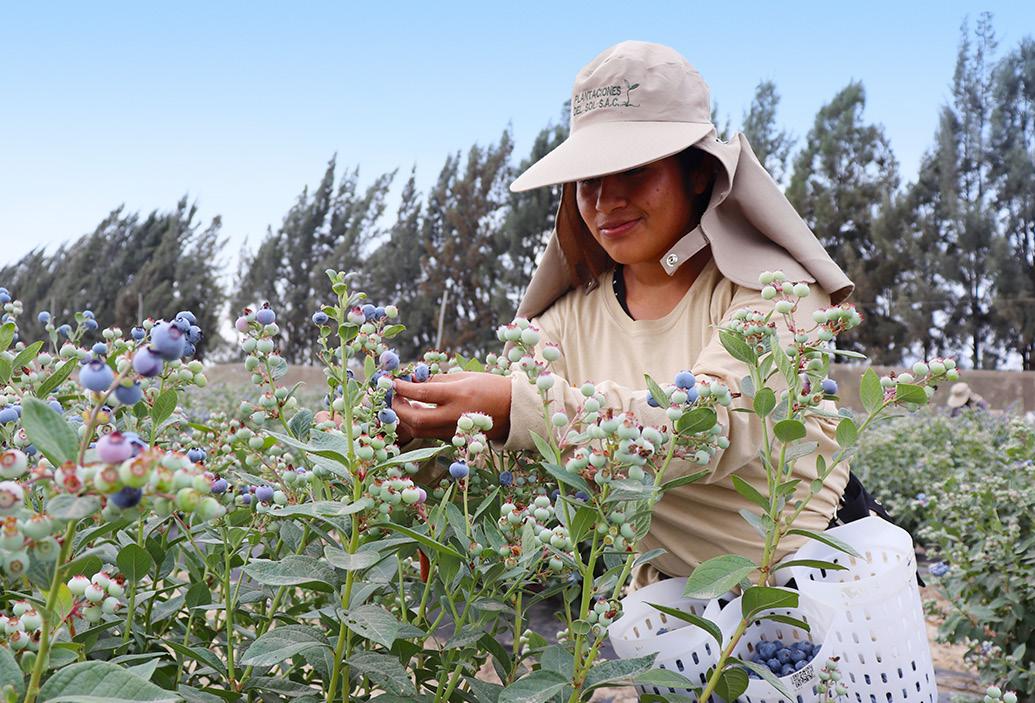
Data ethics
Data has great importance for the functions of our company. For that reason, we possess, collect, handle and process different types of data: General data as well as personal data. We strive to handle all data in an ethical way, and all types of data are processed legally, fairly and transparently.
We follow the legal developments and have formulated a Data Ethics Policy. Our approach for collecting, handling and processing of personal data is described in said policy. Any data we possess, is limited to a minimum in order to fulfil the purpose, is stored securely, kept accurate, retained for no longer than necessary, and is only used for a specific and legitimate business purpose.
Operating as business-to-business, most of our data relates to our customer relationships. As part of these relationships, we collect and store personal data on contact people, such as their name, phone number and email address. We do this to enable communication and to fulfil any contract we make with them. The data is collected and stored in a secured system. Here, we also store data on business leads, who contact us through our website or trade shows. The system does not make any automated profiling of the customers or leads.
Visitors on our website are anonymous, unless they submit a form for newsletter signup or inquiries. In those cases, we store name, email address and country of residence. We need the email address to deliver the requested newsletter, and their names to make our emails more personal. The country of residence is for convenient timing of the newsletter delivery, considering the receiver’s time zone. Data related to the receiver’s interactions with our emails is also stored, e.g. openings of the emails and clicks on links within them. These data are stored in a GDPR-compliant platform and are used for the sole purpose of the subscribers’ intention.
Employees’ personal data is collected and stored in order to uphold a normal employment. Sensitive data related to the employment (e.g. salary) is extra protected and handled only by a few, selected people.
We do not use algorithms, machine learning or artificial intelligence for processing of data.
Social and employee relations
Farming is a hazardous profession, and thus the main risks for our employees are related to accidents and unhealthy conditions. The safety and well-being of our employees is our main priority. Providing safe work environments for our teams is one of our most important responsibilities.
During 2023/24, we had no fatal accidents, but 53 accidents in total. 16 of these accidents required time off work. Our LTIFR (lost time injury frequency rate¹) for the reporting period was 3.47, compared to 2.71 for the prior period.
Our farm managers hold regular safety briefings with their teams and ensure that they have yearly safety trainings, including first aid, fire safety and use of equipment.
Our teams report on accidents, but also on unsafe conditions. We continuously monitor and analyse the incident data to assess where we should direct efforts and resources to reduce risk. This work will continue in the years to come. One of our global initiatives to decrease our number of accidents is Ingleby Safety Minutes. These are short videos that increase awareness and give instructions on a specific topic to ensure our team is in line with safety procedures.
In case of an accident, we have a safety warning system where e-mails are sent out to all countries with information about the accident and how to avoid similar accidents in the future.
During 2023/24, we developed and implemented a safety app. This app enables us to report incidents directly in the fields and production areas where accidents are more likely to occur. We expect the increased ease of reporting to result in faster and more accurate reporting, which will help raise awareness of work safety.
We have also been testing in-field platforms for safer – and less cumbersome – pruning and harvesting in our avocado orchards.
We remain committed to providing adequate, usable and appropriate training to our teams worldwide. Once more, we surpassed our annual training goal of 2%, by investing 3.6% of total work hours in training.
O Operational
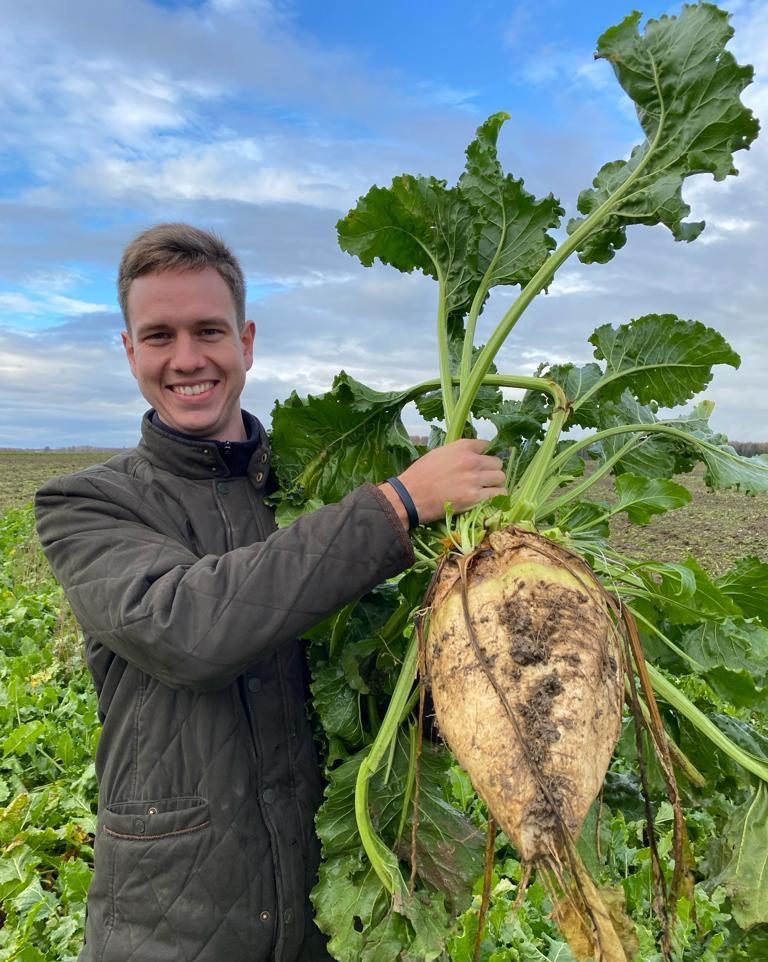
Climate matters
Growing food and feed on large-scale, implies risks of impacting the climate negatively. Material risks in this matter are related to greenhouse gas emissions, energy and water.
As owners and stewards of the land, it is our responsibility to act and create change in how we farm to not only reduce and mitigate emissions, but also to lock carbon back into our soils, trees and plants. As top-soil and water are both increasingly scarce, we expect stronger farming and environmental regulation around practices such as tillage and agro-chemical use.
We believe that farming is at a crossroad where the time is now to create positive change and turn a corner towards new ways of farming, thinking and adapting. To that end, we are striving for our farms to become climate positive. This means having a positive net effect on the climate by drawing down and storing more CO2e than they release.
Greenhouse gasses
Greenhouse gasses are emitted from agriculture due to livestock rearing, fuel consumption, production of pesticides etc.
This year, we performed our second company-wide greenhouse gas (GHG) inventory of scopes 1, 2 and parts of scope 3. Our total gross emissions are 193,959 t CO2e, yet 59,421 tons are sequestered with our land management practices and tree biomass. Therefore, our net emissions for 2023/24 productive year are 134,538 t CO2e. Pastoral production is responsible for 68% of our gross GHG emissions, while cropping account for 24% and horticulture for 7% of total emissions.
The key drivers of the sequestering are cover cropping, transition to permanent crops and adjacent planted shelterbelts. We continue to assess appropriate areas for implementation of these drivers.
Energy
Agriculture uses energy in the form of fuel and electricity to operate farm machinery and equipment to dry grain and cool fresh produce.
At Ingleby Farms, we are mindful of our energy consumption, embracing as much renewable energy as possible. Across all our farms’ and offices’ electricity consumption (scopes 1 and 2), 70%2 is sourced renewably, including 2.57 million kWh of solar power generated on our farms.
We measure our energy use to continuously improve the environmental performance of our production systems. In 2023/24, we used a total of 289,721 gigajoules (GJ) of energy. This amounts to 3.23 GJ/ha. Our total energy usage is down 4.1% compared to the year before.
The majority of energy spent directly on our farms is in the form of diesel (56%) followed by electricity (29%) and natural gas (7%).
This reporting period, we installed solar panels on the roofs of our production buildings in Latvia, Lithuania and Romania to push our future energy consumption mix towards more renewable energy.
Water
Next to soil, water is our most precious natural resource. The most material risk within this area is the large quantity of water used, which might pose a threat to the environment.
Irrigation stabilises and increases yield, ensuring the farms’ ability to endure extreme weather conditions like prolonged drought. Irrigation also improves the crops’ use of fertilisers, as plants are more efficient at taking up nutrients when the soil is moist.
Water also provides clean drinking water for our livestock, and supports our diverse wildlife habitats. Therefore, it is important for us to continuously manage our water in the best way possible and we believe that transparency in our water practices is a necessity.
We irrigate a total of 9,562 hectares in Argentina, Australia, Lithuania, Peru, Romania, United States and Uruguay. The irrigated area equals 20% of our total arable land. In the fiscal year 2023/24, we applied 40,157 mega litres of water to our fields and orchards. We have an obligation to protect waters and water habitats for ourselves, our neighbours, future generations, and for biodiversity and ecosystem services. Therefore, we continue to use a range of nature-based solutions to conserve water and keep our rivers clean.
Water habitats are epicentres of biodiversity and an integral part of our way of farming. This waterbody is located on our Tormac farm in Romania.
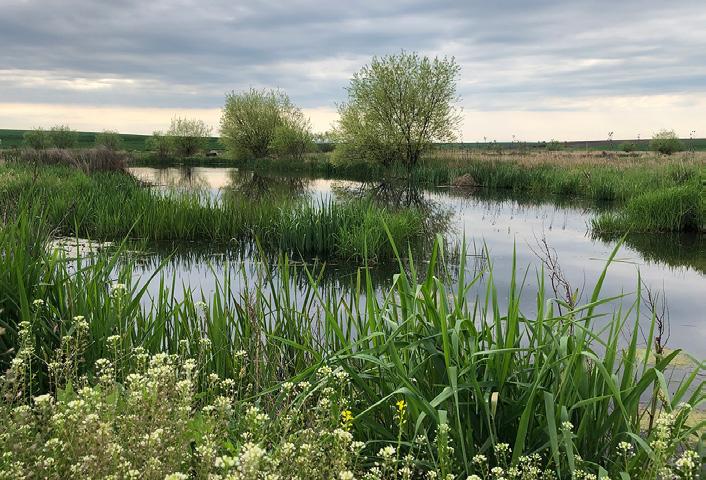
For example, terracing along slopes and grass waterways in low areas of our cropland. In this way, we slow the velocity of water after rainfall, and at the same time protect our soils and waters by reducing erosion and sedimentation.
This reporting period, due to increasingly hotter weather, we increased the irrigated area in Romania to include our newly established hazelnut orchard. The installed irrigation system follows our operational
standards on water efficiency. Going forward, we expect irrigation to become even more important due to the severe climate changes.
2 This is based on the location-based method regarding electricity from the grid i.e. we use the rate of renewable energy produced into the local grids of the countries we operate in. And then we add the solar power produced on farm.
Environmental matters
Synthetic pesticides
Synthetic pesticides – and other agrochemicals – are a material risk for agriculture in general. If over-applied, there is a risk of these chemicals leaking into the local waterways and environment.
We have reduced use on our crops and horticulture by 13% against our benchmark. This is a collective effort from all the cropping and horticultural teams worldwide and reflects their innovation, trials, new technology and increased precision with application.
Measuring pesticide use is tricky. There are multiple variables to consider, including the product, the active ingredient and the toxicity of that active ingredient. We have been measuring pesticide use by the level of active ingredient (AI) per hectare in our sustainability reporting for more than 14 years, so we have a solid benchmark for measuring progress.
Biodiversity
Biodiversity in all its forms is vital to improve our farms and food production and to maintain our planet’s resources and ecosystems.
Biodiversity provides services which help to cycle nutrients, form soil, sequester carbon, store and filter water, provide pollination and control pests. We also believe that biodiversity makes our production systems more resilient to economic and environmental stresses, including the effects of climate change.
Diversification in crops together with new varieties sustain yields, but also support and strengthen our local biodiversity and ecosystems. This reporting period, we grew 37 different crops.
In Lithuania, we planted 122 kilometres of 3-meter wide bee-friendly buffer strips of perennial plants. An example of how we continually seek to provide habitats for all species and promote connectivity between protected areas in our farming landscapes.
This reporting period, we have tested several tech solutions within precision ag; e.g. spot spraying, digital weed recognition and drone mapping. These solutions help us apply less pesticides without affecting the yield negatively. We expect to rely more and more on tech solutions to minimise applications. O
A
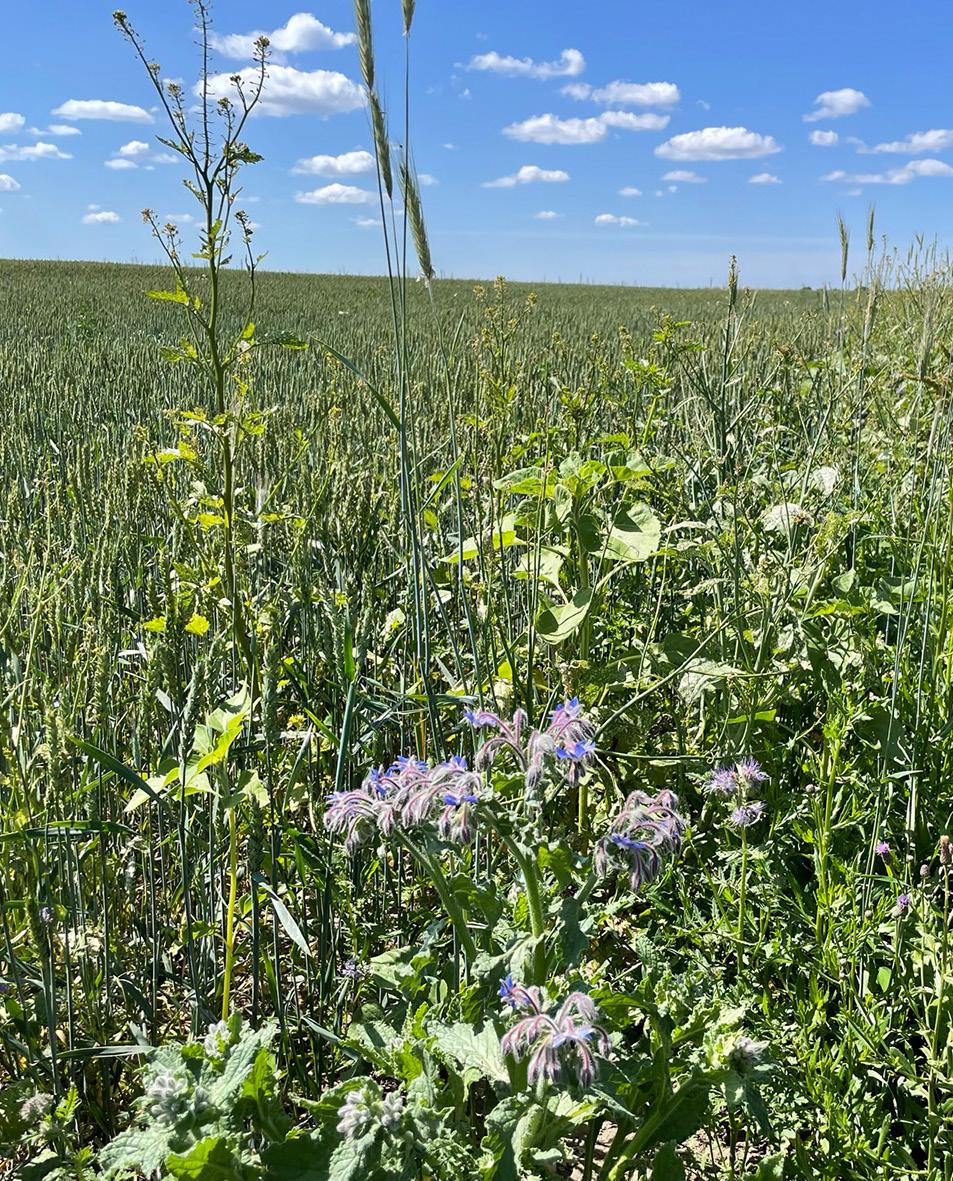
Gender distribution in management
We oppose all forms of discrimination, and we recruit employees regardless of age, race, gender, nationality, religion, sexual orientation or other personal diversity indicators. We are equal opportunity employers, and we want to create equal and fair working atmospheres welcome to all.
We monitor the gender ratio by head count. Our target is for the underrepresented gender to reach at least 40% by 2029/30. The deadline for reaching our target number for the Board of Directors has been pushed out by four years to 2029/30. This is due to a recent restructure of other levels of management, which will likely reduce our opportunities to change the composition in the short term. The reason for this is the
recent restructure has created a need for stability and continuity within the Board of Directors, making it more difficult to implement significant changes to the gender composition in the immediate future.
In the financial year 2023/24 we reached the target on the executive management level, but not on Board level where women currently are the underrepresented gender.
For the Board of Directors, the target figure for the underrepresented gender is 40% in 2029/30. At the opening of 2023/24, the Board of Directors was strengthened with two additional members, thereby increasing the number of members to 11. Despite our established policy about strengthening the underrepresented gender, the two new members were male, decreasing the female representation ratio to 18%. The focus for
their appointment was contribution of niche experience to align with the company’s strategic needs, and there were no female candidates identified - which is why we have not achieved our target figure.
During the year, one male member left the Board of Directors to retire. Searching for his replacement during 2023/24, we actively targeted female candidates in our search through executive search agency and professional networking.
“Other levels of management” is defined as Level 1 and 2. Level 1 is the CEO and level 2 is executive management positions with a direct report to the CEO.
During 2023/24, one female manager was promoted to executive level. At the end of 2023/24, other levels of management
consisted of 6 members, of which 3 were women, corresponding to 50%. With an equal distribution, no gender is currently underrepresented in other levels of management.
Other managerial positions with employee responsibilities and direct report to the CEO are located in our global teams outside of Denmark.
During recruitment and through career development, we focus on attracting and retaining female employees and executives, who wish to pursue careers in farming or forestry. In connection with external and internal recruitments at all levels, there will be a continued focus on identifying both female and male candidates.
O In-field knowledge sharing across teams, Lithuania.
